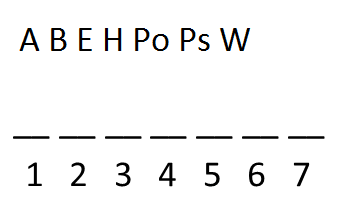
Update: Taking the LSAT in August 2024 or later? Be sure you know about major upcoming changes to the test and plan accordingly. In particular, the Analytical Reasoning section (aka Logic Games) will be removed, and there will be a new argumentative task in the Writing section. Taking the test before August 2024? Read on!
The LSAT analytical reasoning section, a.k.a. logic games, might be your favorite section. Or, if you’re just starting out, it’s your least favorite. Why? Well, it’s very different from most students are used to on standardized tests. Getting used to the rules of the games, the different types, and techniques to do well take time. And not only are you aiming for accuracy, but speed, too. So how can you get faster at logic games? Check out these tips!
Reduce Your Thinking Time
The trick to getting faster at LSAT Logic Games is to reduce your thinking time. And when I say “thinking time,” I mean the time you might spend thinking about what to do next. For example, the time it takes to choose the best gameboard. Or, the time it takes to understand what a question is asking you to do. As you practice your logic games, you’ll want to aim to know exactly what’s expected of you. Thankfully, the basic framework of the section doesn’t change much–only the details. You’ll almost definitely see a sequencing game, and a grouping game. So the issue shouldn’t be knowing what setup to use. Your time should be spent quickly writing down and understanding the individual game-rules, then applying them.
Know Your Game Types
The first way to get faster at logic games is to know your game types. When you read the setup, you should understand whether you’re dealing with simple sequencing, fixed grouping, floating grouping, hybrid, etc.
If you practice recognizing the game type quickly, you will save a lot of time deciding what gameboard to use.
Thoroughly Examine Your Gameboard
The next way to get faster at logic games is, surprisingly, to take a little more time examining your master gameboard before you dig into the questions. For example, let’s say you’ve just set up a master gameboard for a simple sequencing game.
Pieces: A, C, X, Y, Z
Mon Tue Wed Thu Fri
X must always go one day before Z. So, you have an “XZ” block. And Y must always go on Tuesdays.
Before you move on to the questions, think to yourself, what does that imply for the rest of my pieces? In the case of this example game, there aren’t too many possibilities! You can actually diagram most of the possible scenarios! If you can have all possible scenarios figured out before you start a game, you’ll be in the position to finish super quickly! So taking a little time before you begin will save much more time in the long-run.
Use Efficient Hypothetical Diagramming
Finally, my last tip for getting faster at games is to practice efficiently diagramming hypothetical situations. For example, questions that ask “What could be true if Z goes on Friday?” If you’re dealing with a simple sequencing game and you can’t learn all possible combinations from your master gameboard, you can have a chart setup to quickly diagram possibilities. This way, you won’t have to draw a whole new “week” board for every possible situation. Like this pre-drawn chart:
M T W H F S
_|_|_|_|_|_
_|_|_|_|_|_
_|_|_|_|_|_
_|_|_|_|_|_
You can also try writing rules for each day at the top of your chart. Ultimately, the better you can anticipate your diagramming needs, the faster you can go without wasting time writing unnecessarily.
Practice, Practice, Practice!
So there you have it! With these tips, you’re well on your way to speeding up your time in the logic games section. And with a faster time, you can score higher on the LSAT. But they do take practice. Don’t hesitate to repeat games until you’ve reached 100% accuracy and a reasonable speed.
Have any other suggestions for getting faster? Comment below!







Leave a Reply